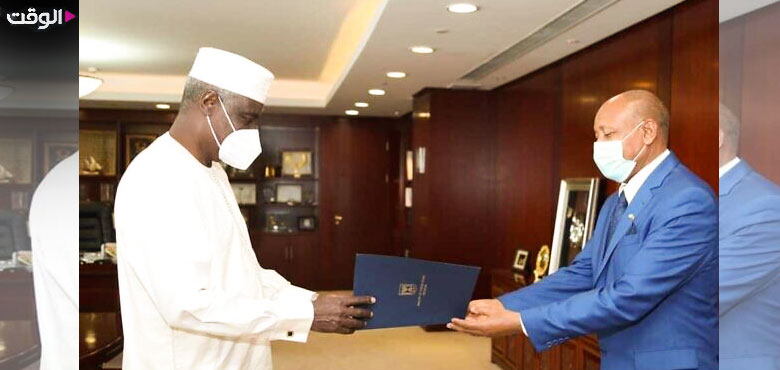Alwaght- 19 years after its ouster, the Israeli regime rejoined the African Union (AU) as an observer member on July 22. A statement published by the Israeli Foreign Ministry said that Tel Aviv has relations with 46 African countries and in recent years, it resumed ties with Chad and Guinea, and earlier this year normalized ties with Sudan.
Retaking Israeli status as observer member drew reactions from political analysts and parties in Palestine. In response, the Hamas movement stated on July 24, "This was a shocking and reprehensible decision. This decision adds to the legitimacy of the occupying regime in our country and gives it more opportunities to continue conspiracies to disregard the rights of the Palestinians, as well as to continue brutal crimes against the Palestinian people. Unfortunately, this decision is being taken by the African nations; the same nations which have been under colonization for centuries and struggled substantially to set themselves free."
Here are questions: What is the Israeli goal behind rejoining the AU? What are the results for Tel Aviv?
History, goals, and possible results
Up to 2002, Israel was an observer member of the Organization of African Unity, until the body was dissolved, giving place to African Union. After a series of normalizations with some of African states, Tel Aviv has retaken its status again last week.
Since its foundation in 1948, the Israeli regime has been suffering from isolation, encirclement, and also lack of strategic depth. It seizes any opportunity to break this isolation. During Benjamin Netanyahu's 12-year premiership, the Israelis made the African continent their main foreign policy focus. In July 2016, Netanyahu became the first Israeli prime minister to visit Africa after decades at the invitation of Uganda, Kenya, Rwanda, and Ethiopia in East Africa. Also before initiation of the normalization process with some Arab monarchies, African states were of extraordinary significance to the Israeli foreign policy. It seemed that after normalization started late last year, the African importance declined to the Israelis, but now that the thaw aims were missed, Tel Aviv restored influence in Africa to the top of its foreign policy.
Other drivers behind expansion of relations with Africa include arms sales, gaining African diplomatic advocacy on the international stage, pushing back against the global wave of anti-Israeli criticism for its apartheid policies, pressuring the African Arab states to stop support to the Palestinians, and managing the Jewish migration project in Africa that seeks transferring the Jewish Africans to the occupied Palestinian territories as labor force, soldiers, and mining and farming growth propellers.
The Israeli toehold gain in Africa, in addition the Western and especially American role and colonialism, is empowered by its decades-long game in crises of the African countries. In the 1960s, the Israeli relationship with African states was handled by the governments. However, since then, non-state actors like military officials and coup-instated regimes established clandestine ties with the Israelis and received intelligence and security assistance from Tel Aviv, making the Israelis turn increasingly into dominant players in that continent.
Regional rivalry over Africa influence
Another reason Tel Aviv retook its status as observer member in the African bloc is the regional competition among several actors to gain a foothold in Africa, particularly in North Africa and the countries of Mediterranean vicinity. Various countries have been seeking active involvement in the African crises over years. An example is the UAE that played a role in Djibouti, Ethiopia's Tigray Region, Sudan, and Libya, building its presence based on military bases, proxy forces, and political support to like-minded groups.
Others, including Saudi Arabia, Egypt, Turkey, and Israel, are also engaged in this competition aimed at developing sway in Africa. Tel Aviv seems to have rejoined the AU in a bid to take on Turkey, which deepened its position in Africa, especially Libya, over time.
“This is a day of celebration for Israel-Africa relations,” said Israeli Foreign Minister Yair Lapid. “This diplomatic achievement is the result of efforts by the Foreign Ministry, the African Division, and Israeli embassies on the continent," he added.
The reality is that Tel Aviv is capitalizing on relations with Africa as a prestige and legitimacy winner in the region, mainly for breaking the geopolitical and political isolation. As a conclusion, in the near future, the competition among actors to join the AU as observer members will possibly grow heated.



























